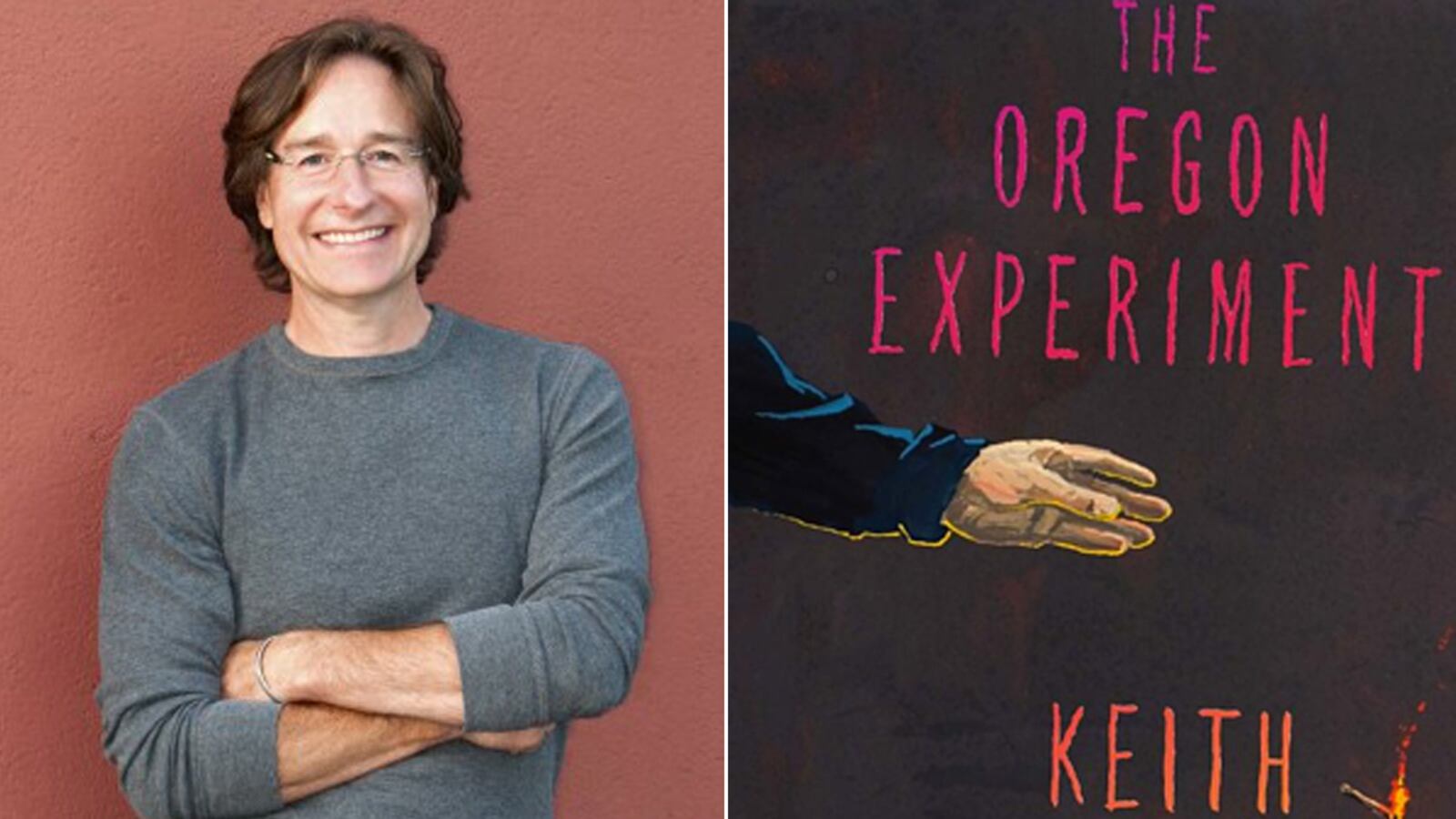The Pacific Northwest, where I live and write, is well known for its thick forests, mountain biking, and microbrews. It is also a mecca for anarchists. My conversations with an anarchist—research for a just-published novel—were on my mind when I read last month about the Austin, Texas, anarchist and community organizer Scott Crow, who was under FBI surveillance for three years, having never committed a crime. They were on my mind again when white supremacists and antigovernment “patriots” fired shots at Missoula County, Mont., sheriff’s deputies, and again when “criminals and anarchists” rioted in Vancouver, British Columbia.
My first meeting with the anarchist was set for 2:30 on a Tuesday at one of the grimier downtown coffeehouses in Corvallis, Ore. I’d gotten his phone number, called, and told him about the novel I was writing, and he agreed to talk with me, saying I’d recognize him by his do-rag. I arrived a little early and sat with a coffee at a table with a clear view of the door. Twenty minutes later, I got a refill. After an hour, one more. I called the number, but it rang and rang. I waited a full two hours before giving up, and it wasn’t until the next day that I got him on the phone. “Oh, yeah,” he said. “I had to do something.”
My first lesson in anarchy.
He showed up for our second meeting, and I had a fascinating, afternoon-long conversation with a complicated, charming, intelligent man in his 30s who believes in self-sufficiency, sustainable living, and working locally for change. He distrusts big government and is baffled by a system in which suits in Washington, D.C., mandate the fates of forested hillsides and streams in Oregon’s Rogue Valley. He doesn’t just grumble about shoes made by impoverished children on distant continents for Walmart; he’s obsessed with creating a world in which we can, if not make our own shoes (and he organizes how-to classes), then at least buy shoes made by our neighbors. He believes in recycling and growing lettuce. He believes in protests, as in let’s “do some protests,” as in let’s peacefully assemble to demonstrate our opposition to companies that pollute the environment or exploit their workers, or to laws that don’t do enough to stem climate change or that favor the rich over the poor, corporations over people.
He does not believe in violence or destruction as means for bringing about change.

In the FBI reports obtained by Scott Crow through the Freedom of Information Act, I was struck by what appears to be a basic lack of knowledge of American cultural history. One agent noted that “nonviolent direct action” is “an oxymoron”—apparently without any sense of the term’s association with the civil-rights movement and Martin Luther King Jr. (of course, another activist monitored and investigated by the FBI).
The methods and goals of many self-identified anarchists are smack in the middle of proud American traditions. They condemn the violence of other so-called anarchists, and do not seek chaos or mayhem but a functioning society that privileges individual freedoms. For a nation that prides itself on the self-made man, entrepreneurship, and individual rights, we seem strangely threatened by a philosophy that emphasizes individual freedom over government control.
To highlight the threat, we make them “other,” make them foreign, which is easy with terrorists from Al Qaeda but less so with targets like Scott Crow. The FBI reports mention his Pottery Barn and Neiman Marcus catalogs; a “suspicious flat object” that may have been a banner for “an upcoming protest,” turned out to be a quilt “for a kids’ after-school program.”
Pottery Barn, children, quilts. How far is this from baseball and apple pie?
The loose label of “anarchist” is part of the problem. The anarchist I got to know would rather grow his own food than shop at Safeway; he’s devoted to his young son, hoping (that hope central to the American Dream) that he can leave his son a better world.
He told me that the government sent his father to the Vietnam War; he landed in the country on his 18th birthday and returned home wounded. The physical injuries healed, but PTSD left him essentially unable to function. He told me about waking up one morning as a child and opening the fridge, empty except for government raisins and beer; in the years ahead he’d come to resent the government handouts that sustained him. Which is to say that like the rest of us, he’s full of contradictions and hypocrisies.
It’s essential that as a culture we make better distinctions between nonviolent anarchists like Scott Crow, the hoodlums and thugs in Vancouver, Al Qaeda terrorists, and “patriots” like those who fired on sheriff’s deputies. We can’t afford to investigate people for assiduously exercising their First Amendment rights—resources are too limited, and we risk missing genuine threats to our nation. But just as importantly, we weaken the American fabric itself when people outside the mainstream in their politics, lifestyle, or beliefs are deemed suspicious. They’re part of the diversity that makes us great.
When my 10-year-old daughter came to my reading last week at Powell’s Books in Portland, Ore., she asked the final question of the Q&A: “What’s an anarchist?”
For Americans, as for the FBI, that’s a question without a clear answer.






